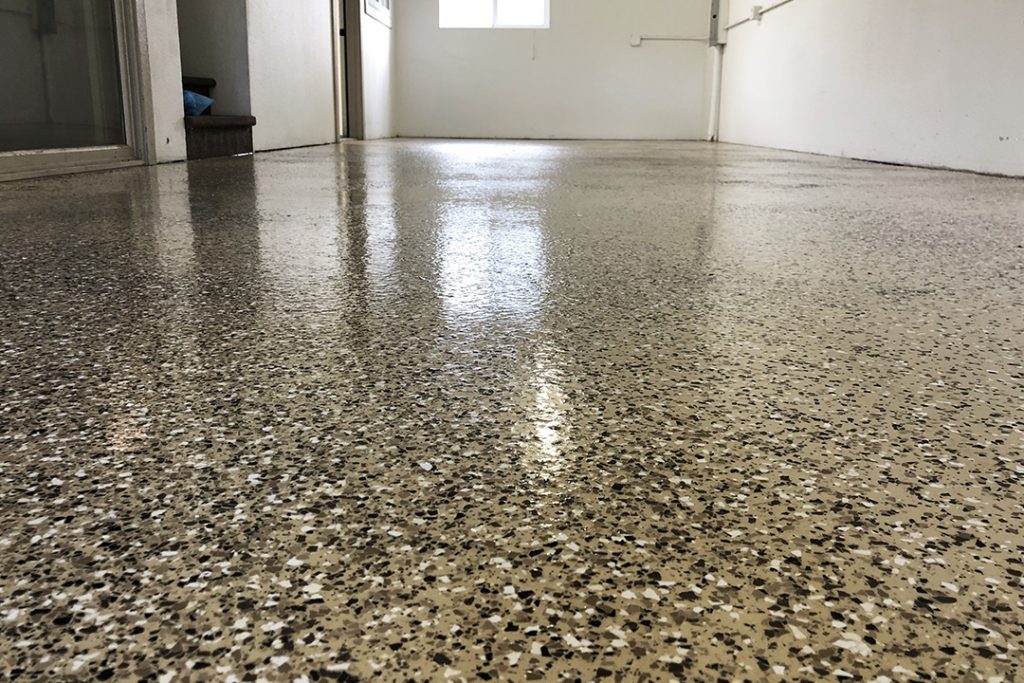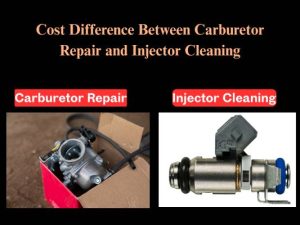Polyurea floor coatings have gained significant attention in recent years due to their exceptional durability and versatility. Originally developed for industrial applications, polyurea concrete coatings have expanded their reach into commercial and residential settings. Their rapid curing time, resistance to chemicals, and flexibility make them an attractive choice for a variety of flooring needs
Importance and Popularity in Various Industries
Polyurea’s popularity spans multiple industries, including automotive, construction, and manufacturing. Its ability to withstand heavy use and harsh conditions makes it ideal for settings that require robust and long-lasting flooring solutions. As industries seek more efficient and durable flooring options, polyurea coatings have emerged as a leading contender.
Technical Specifications
Chemical Composition
Polyurea is a type of elastomer derived from the reaction of an isocyanate component with a resin blend component. The unique chemical composition provides superior mechanical properties and environmental resistance compared to traditional coatings.
Application Process
The application of polyurea floor coatings involves a few critical steps:
Surface preparation, including cleaning and priming.
Mixing the polyurea components using specialized equipment.
Spraying or rolling the mixture onto the surface.
Allowing the coating to cure, which typically takes only a few minutes.
Curing Time
One of the standout features of polyurea coatings is their incredibly fast curing time. In many cases, the floor can be returned to service within 24 hours, making it a highly efficient option for businesses and homeowners alike.
Durability and Longevity
Polyurea coatings are known for their exceptional durability, offering resistance to abrasions, impacts, and chemical spills. This longevity makes polyurea a cost-effective solution over the long term, despite the higher initial investment.
Applications
Industrial Uses
In industrial settings, polyurea floor coatings are often used in factories, warehouses, and production facilities where floors are subjected to heavy machinery and constant traffic. The coating’s durability and resistance to chemicals and abrasions make it ideal for such demanding environments.
Commercial Uses
Commercial spaces like retail stores, restaurants, and hospitals benefit from polyurea coatings due to their seamless finish and ease of maintenance. These coatings can withstand daily wear and tear while maintaining a clean and professional appearance.
Residential Uses
Homeowners are increasingly choosing polyurea for garage floors, basements, and outdoor patios. Its rapid curing time and robust properties make it an attractive alternative to traditional concrete or epoxy coatings.
Specialty Uses
Polyurea’s versatility extends to specialty applications, such as in aquariums, swimming pools, and even military installations. Its waterproof and flexible nature allows it to be used in unique and challenging environments.
Benefits
High Durability
One of the primary benefits of polyurea floor coatings is their durability. They are designed to withstand heavy loads, impacts, and harsh chemicals, making them suitable for various high-stress environments.
Fast Curing Time
Polyurea’s fast curing time is a significant advantage. Unlike other coatings that may take days or weeks to fully cure, polyurea coatings can be ready for use within a day, minimizing downtime and disruption.
Chemical Resistance
Polyurea coatings offer excellent resistance to a wide range of chemicals, including oils, solvents, and acids. This makes them ideal for industrial and commercial settings where chemical spills are a common occurrence.
Flexibility in Application
The versatility of polyurea allows it to be applied in various thicknesses and on different substrates, including concrete, wood, and metal. This flexibility makes it suitable for a wide range of applications.
Challenges and Limitations
Cost Concerns
One of the main drawbacks of polyurea coatings is the cost. They tend to be more expensive than other types of floor coatings, which can be a barrier for some businesses and homeowners.
Application Challenges
The application of polyurea coatings requires specialized equipment and expertise. Improper application can lead to issues such as bubbles, uneven surfaces, and poor adhesion.
Surface Preparation Requirements
Proper surface preparation is crucial for the success of polyurea coatings. This includes cleaning, repairing, and priming the substrate to ensure good adhesion and long-lasting results.
Environmental Impact
While polyurea coatings offer many benefits, their environmental impact is a consideration. The production and application processes involve chemicals that can be harmful if not handled properly.
Long-term Performance Issues
Although polyurea coatings are known for their durability, there can be long-term performance issues if the coating is not applied correctly or if the substrate deteriorates over time.
Latest Innovations
Advances in Formulation
Recent advancements in polyurea formulations have improved their performance and environmental impact. New formulations offer better adhesion, flexibility, and resistance to UV radiation.
Improved Application Techniques
Innovations in application techniques, such as the development of more efficient spray equipment and automated systems, have made it easier to apply polyurea coatings more consistently and with less waste.
Environmental Friendly Options
There is a growing trend towards developing more environmentally friendly polyurea coatings. These include formulations with lower VOC emissions and the use of sustainable raw materials.
Future Prospects
Predictions for Market Growth
The market for polyurea floor coatings is expected to continue growing, driven by increased demand in industrial and commercial sectors. Innovations and improvements in the product will likely spur further adoption.
Potential for New Applications
As technology advances, new applications for polyurea coatings are likely to emerge. This could include more specialized uses in sectors such as healthcare, aerospace, and renewable energy.
Technological Developments
Future technological developments may lead to even more durable and versatile polyurea coatings. This could include self-healing coatings, enhanced UV resistance, and improved eco-friendly options.
Comparative Analysis
Polyurea vs Epoxy Coatings
While both polyurea and epoxy coatings offer durability and chemical resistance, polyurea cures faster and offers more flexibility. However, epoxy is often more affordable and easier to apply, making it a popular choice for many applications.
Polyurea vs Polyurethane Coatings
Polyurea and polyurethane coatings are similar, but polyurea typically offers better durability and faster curing times. Polyurethane, on the other hand, provides a smoother finish and is often used for aesthetic purposes.
Polyurea vs Acrylic Coatings
Acrylic coatings are less durable than polyurea but are easier to apply and more cost-effective. They are suitable for low-traffic areas and applications where cost is a primary concern.
User Guides or Tutorials
Step-by-step Application Guide
Prepare the surface by cleaning and repairing any damage.
Prime the surface to ensure good adhesion.
Mix the polyurea components using the appropriate equipment.
Apply the coating using a sprayer or roller.
Allow the coating to cure according to the manufacturer’s instructions.
Tips for Surface Preparation
Ensure the surface is clean and free of debris.
Repair any cracks or damage to the substrate.
Use a high-quality primer to enhance adhesion.
Follow the manufacturer’s recommendations for surface preparation.
Maintenance and Care Tips
Regularly clean the coated surface to prevent dirt and grime buildup.
Address any spills or stains promptly to avoid damage.
Inspect the coating periodically for signs of wear or damage.
Reapply a topcoat as needed to maintain the coating’s integrity.
Common Mistakes and How to Avoid Them
Skipping surface preparation: Properly prepare the surface to avoid adhesion issues.
Incorrect mixing: Ensure the polyurea components are mixed thoroughly and correctly.
Inconsistent application: Apply the coating evenly to avoid bubbles and uneven surfaces.
Ignoring curing times: Allow adequate curing time to ensure the coating performs as expected.
Expert Insights
Interview with a Coating Specialist
Interviewing a coating specialist can provide valuable insights into the benefits and challenges of polyurea floor coatings. Specialists can share their experiences and offer practical advice for successful applications.
Insights from Industry Leaders
Industry leaders can offer a broader perspective on trends and developments in the polyurea market. Their insights can help predict future directions and innovations in the field.
Tips from Experienced Installers
Experienced installers can provide practical tips and tricks for applying polyurea coatings effectively. Their hands-on experience can help avoid common pitfalls and achieve the best results.
Personal Stories or Case Studies
Case Study: Industrial Application
A detailed case study of an industrial application can highlight the benefits and challenges of using polyurea coatings in a high-stress environment. This can include details on the application process, performance, and long-term durability.
Case Study: Commercial Application
A case study of a commercial application, such as a retail store or restaurant, can showcase the versatility and aesthetic benefits of polyurea coatings. This can include feedback from business owners on the ease of maintenance and overall satisfaction.
Case Study: Residential Application
A residential case study can illustrate the practical benefits of polyurea coatings for homeowners. This can include applications in garages, basements, and outdoor areas, highlighting the coating’s durability and quick curing time.
FAQs
What is Polyurea Floor Coating?
Polyurea floor coating is a type of elastomeric material used to create durable, flexible, and chemical-resistant surfaces. It is applied in liquid form and cures rapidly to form a protective layer.
How Long Does Polyurea Floor Coating Last?
Polyurea floor coatings can last for many years, often exceeding a decade, depending on the application and maintenance. Their durability makes them a cost-effective long-term solution.
Is Polyurea Floor Coating Expensive?
Polyurea coatings tend to be more expensive than other types of floor coatings due to their superior performance and rapid curing time. However, their longevity and durability often justify the higher initial cost.
Can Polyurea Be Applied Over Other Coatings?
Polyurea can be applied over other coatings, but proper surface preparation is crucial. The existing coating must be cleaned, repaired, and primed to ensure good adhesion.
What Are the Main Advantages of Polyurea Coatings?
The main advantages of polyurea coatings include high durability, fast curing time, chemical resistance, and flexibility in application. These benefits make them suitable for a wide range of industrial, commercial, and residential applications.
Conclusion
Summary of Key Points
Polyurea floor coatings offer numerous benefits, including exceptional durability, fast curing times, and chemical resistance. They are versatile and can be used in various industrial, commercial, and residential settings.
Final Thoughts on Polyurea Floor Coatings
While polyurea coatings come with some challenges, such as higher costs and application complexities, their long-term benefits often outweigh these drawbacks. As technology advances, we can expect further improvements and broader adoption of polyurea coatings.
Call to Action for Further Education
For those considering polyurea floor coatings, it’s essential to understand the application process, benefits, and potential challenges. Consult with professionals and conduct thorough research to make an informed decision.









